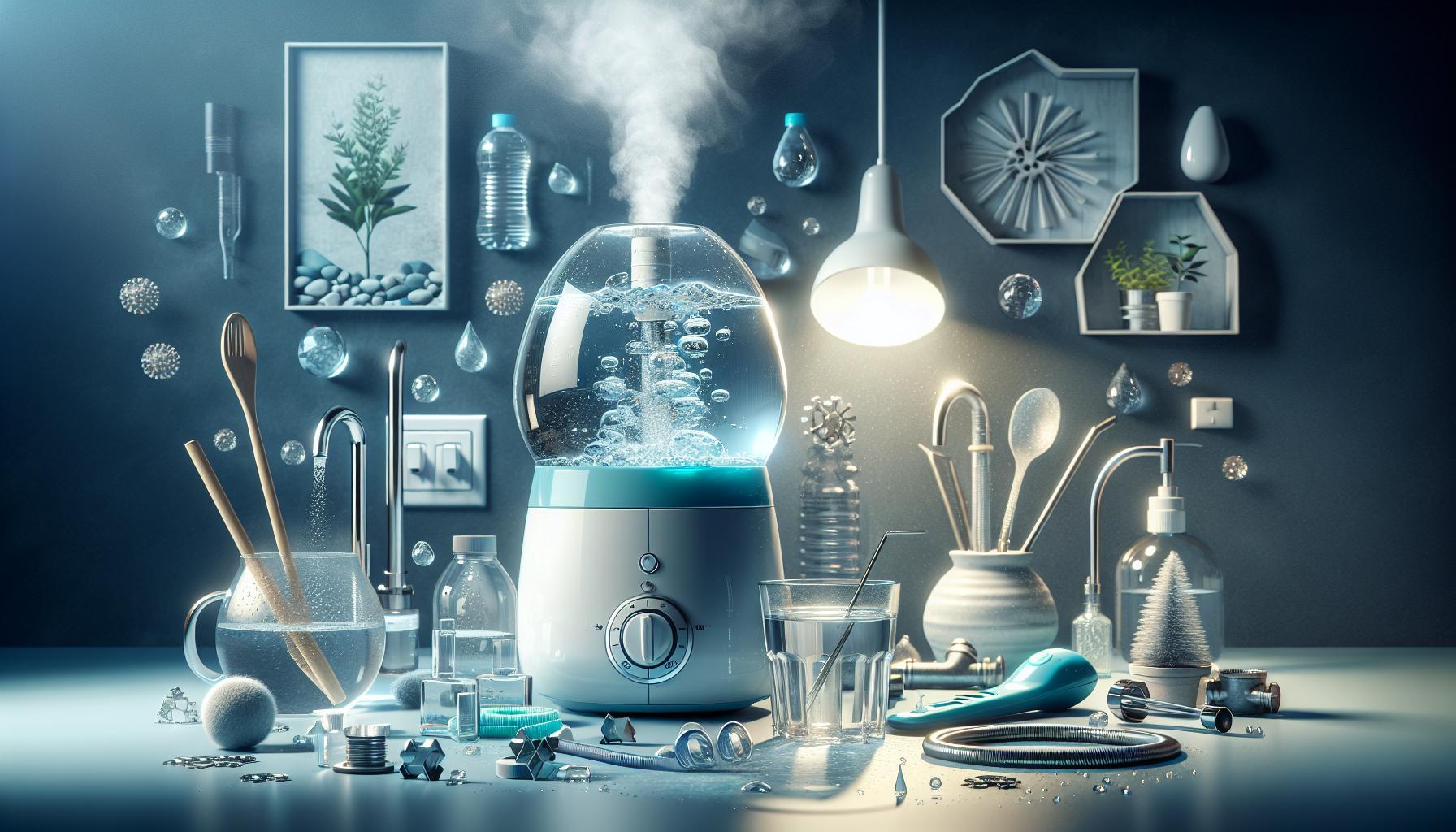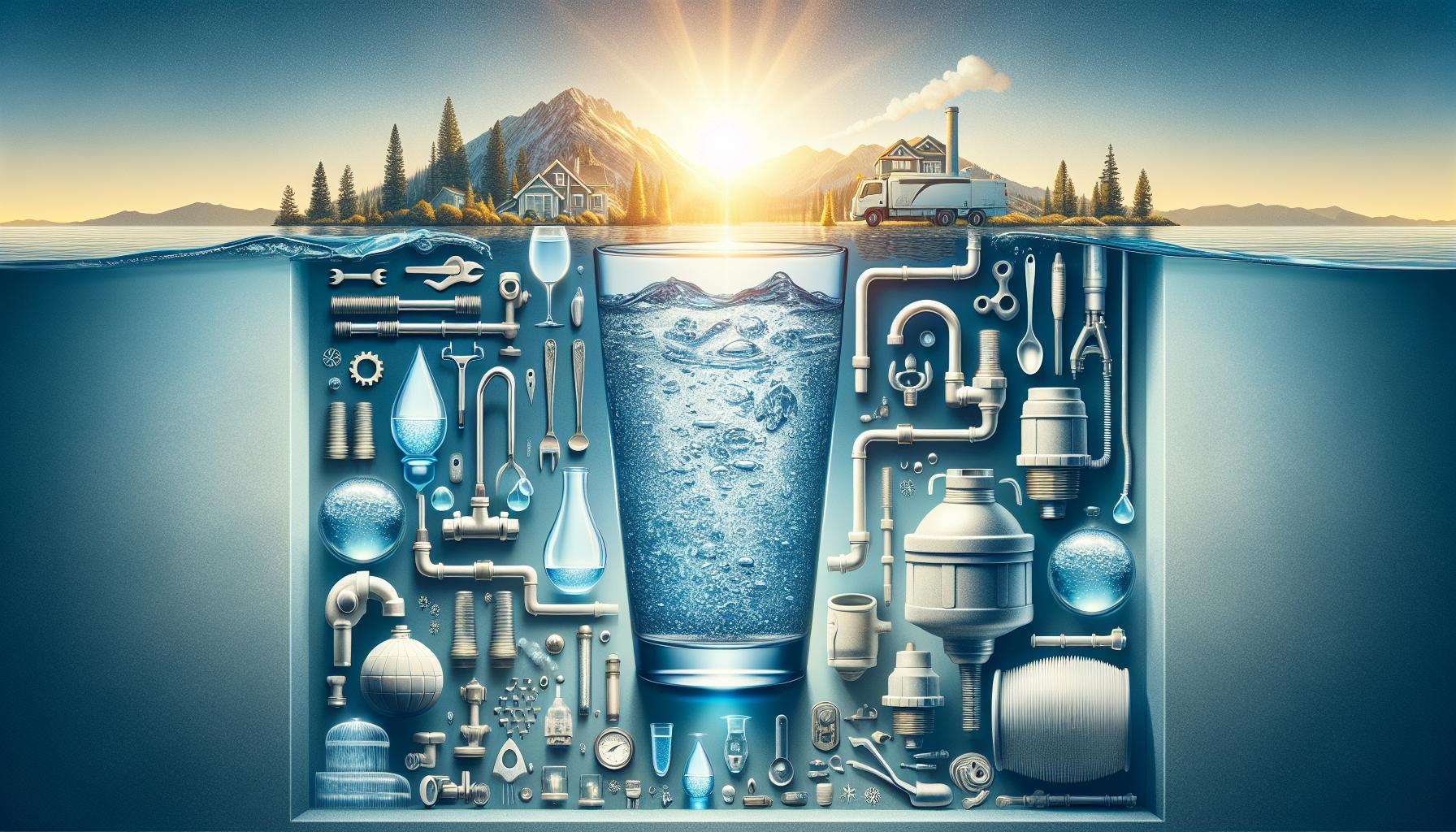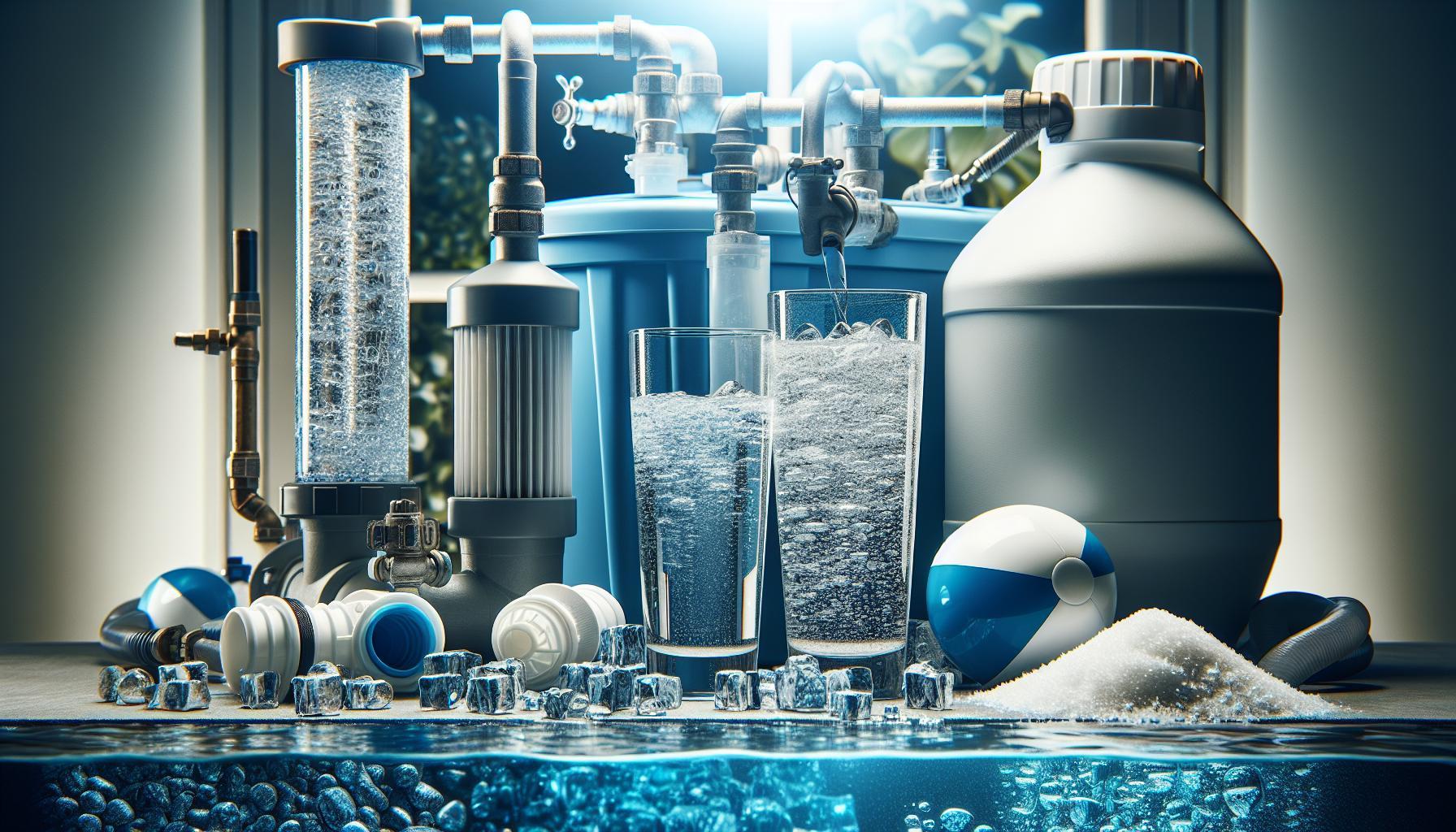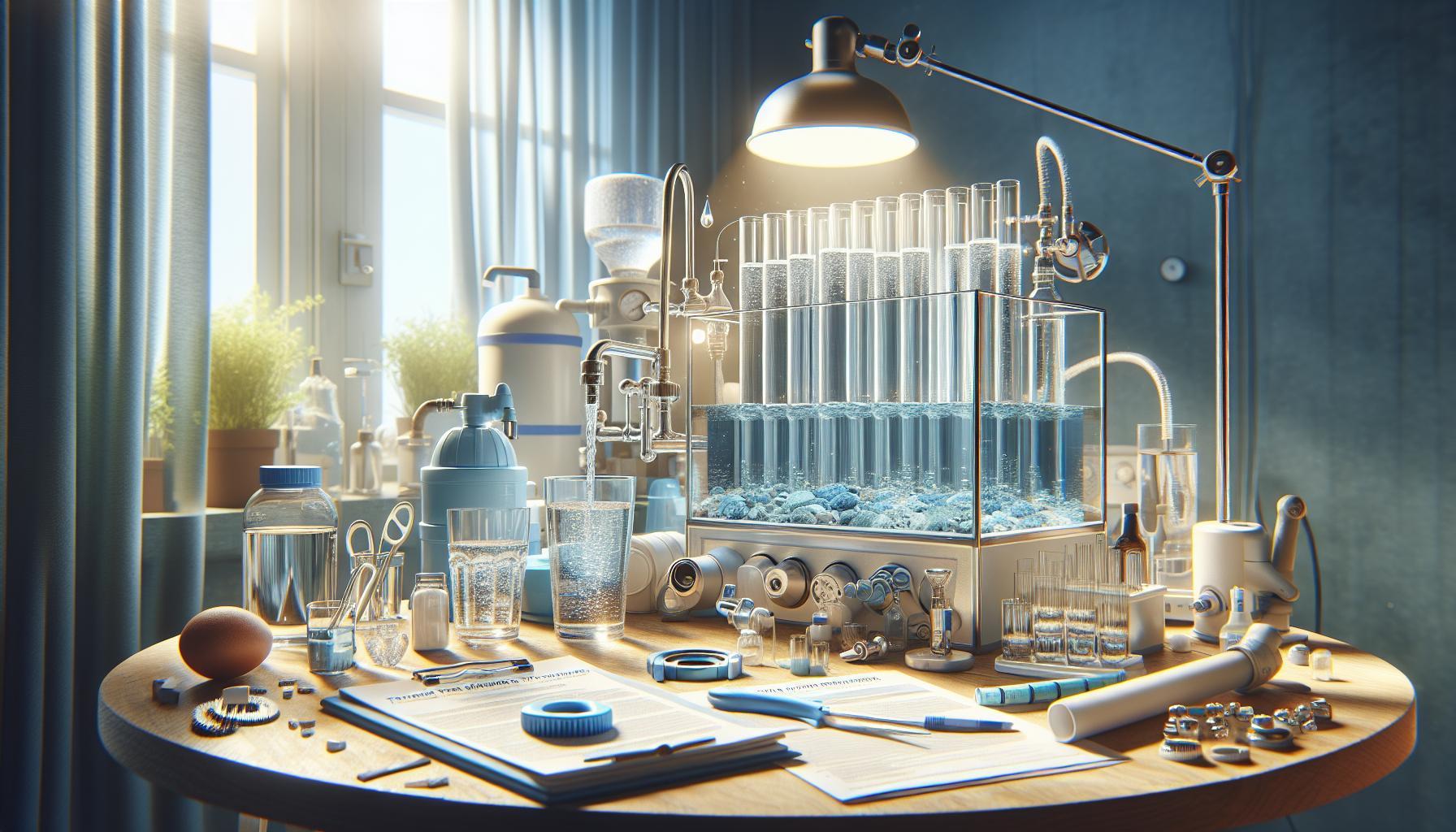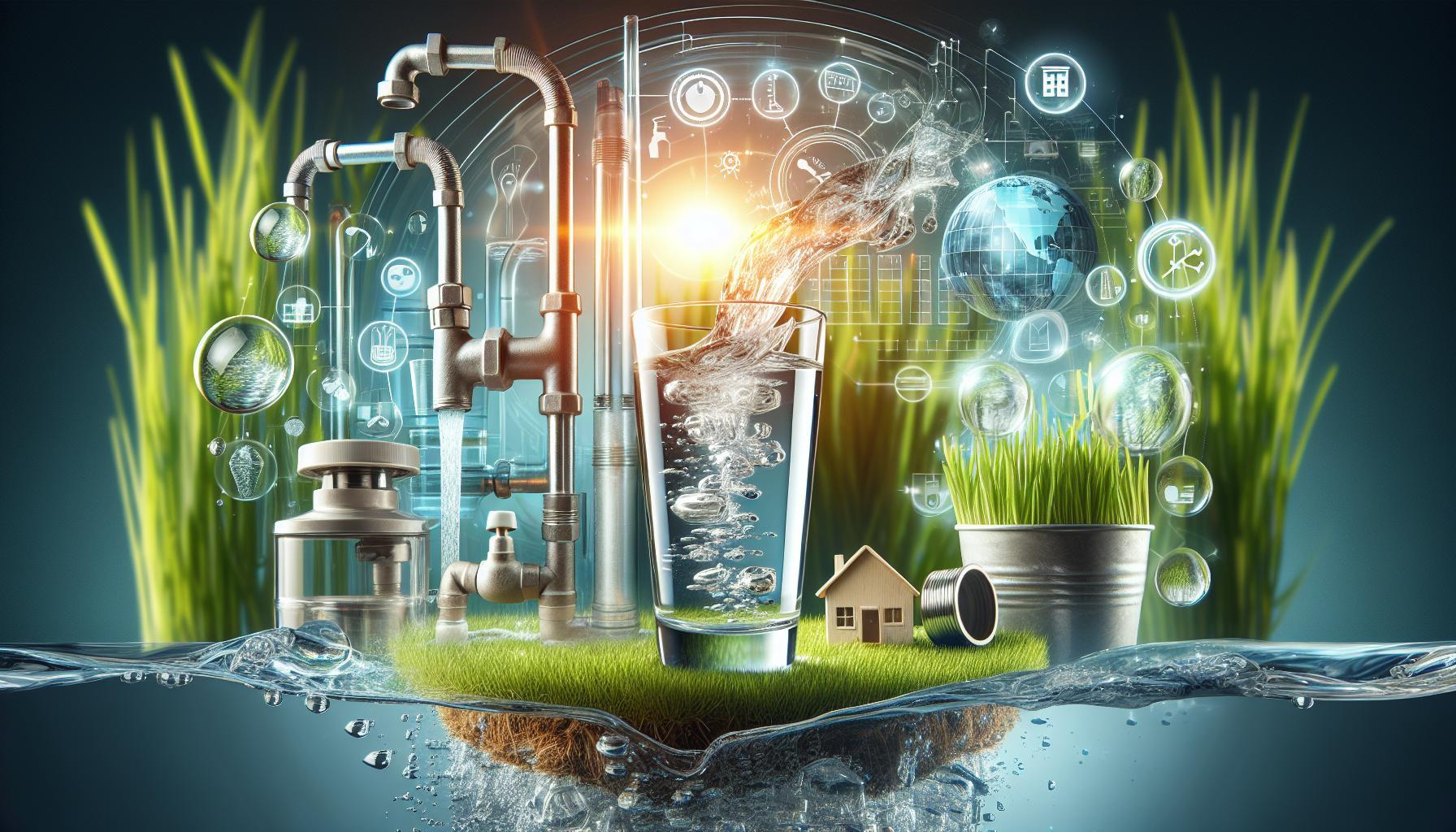Is the water you’re using in your humidifier actually helping to improve your indoor air quality? With choices like purified and distilled water, making the right selection can be confusing. Understanding the best practices for maintaining clean air is essential, as using purified water can effectively reduce mineral buildup and bacteria, ensuring your humidifier operates efficiently and your environment remains healthy.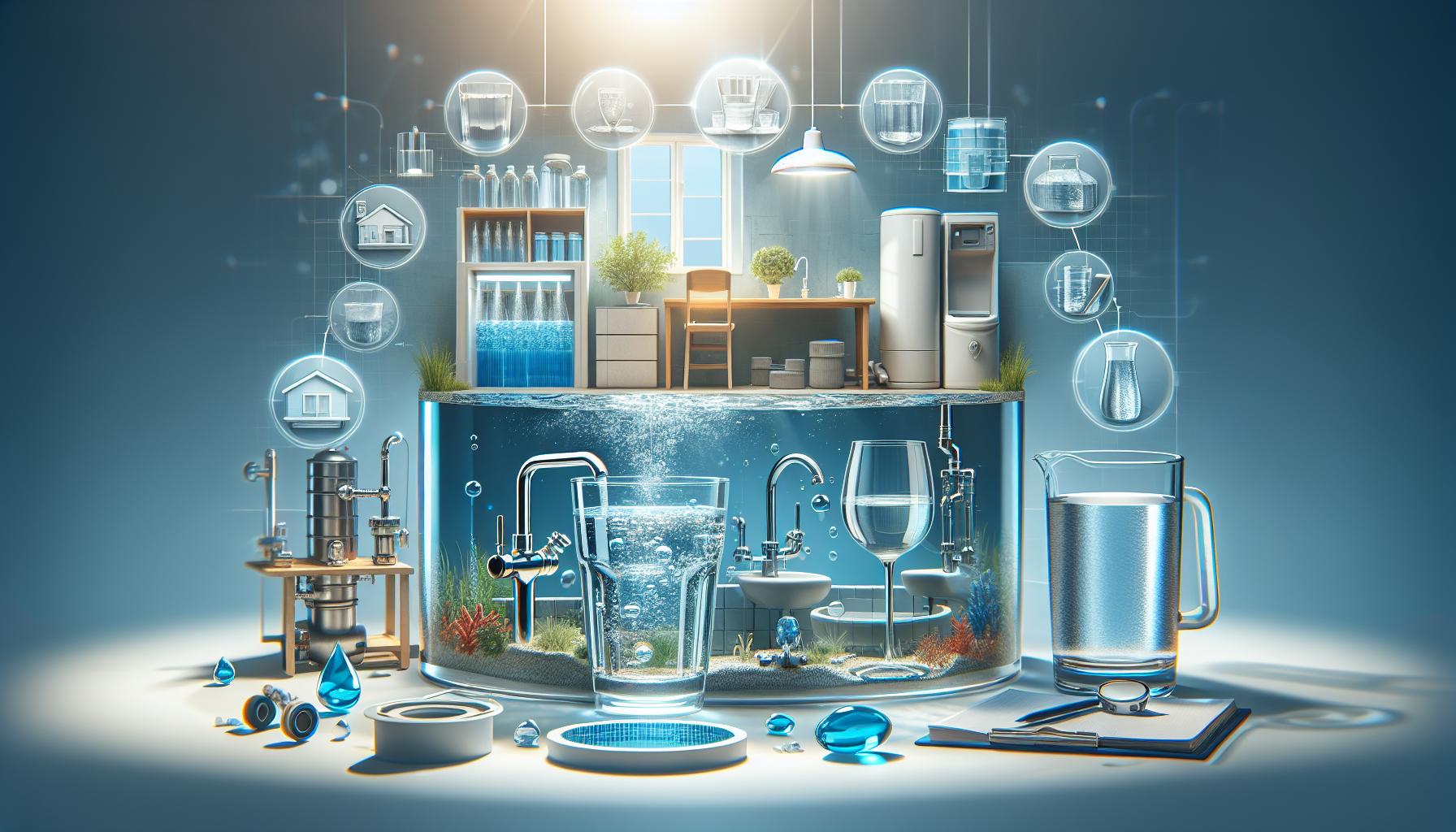
Understanding Purified Water: What It Is and Its Benefits
Water quality affects not only our health but also the performance of our household appliances. Purified water stands out as a popular choice in maintaining appliance hygiene, particularly in humidifiers. It is treated to eliminate impurities and contaminants, ensuring that when used in your humidifier, it promotes cleaner air. This quality makes it crucial for enhancing air quality, especially in environments where respiratory health is a priority.
What is Purified Water?
Purified water undergoes rigorous filtration processes or purification treatments that remove chemicals, physical contaminants, and biological agents. The methods typically include reverse osmosis, distillation, and deionization. Each of these processes helps to ensure the water meets established safety standards, offering peace of mind regarding its quality. One major benefit of using purified water is its minimal mineral content compared to spring water, which can contribute to mineral buildup in humidifiers.
Benefits of Using Purified Water in a Humidifier
There are several noteworthy advantages to using purified water in your humidifier:
- Reduces Mineral Deposits: Since purified water has low mineral content, it minimizes scale buildup within the humidifier, prolonging its lifespan and maintaining its efficiency.
- Improves Air Quality: Using purified water helps prevent the release of minerals into the air, which can otherwise lead to respiratory issues and allergies.
- Promotes Health: It ensures that the moisture dispersed in the air is free of contaminants, benefiting individuals with asthma or similar conditions.
- Less Maintenance Required: Humidifiers run smoother and require less frequent cleaning when filled with purified water, making them more convenient for everyday use.
Using purified water in a humidifier not only enhances the quality of the mist produced but also aligns with best practices for clean air management in your home. By investing in the right water source, you’re not just caring for your appliances but also promoting a healthier indoor environment.
The Impact of Water Quality on Humidifier Performance
Using the right type of water in a humidifier can significantly affect its performance and the quality of air you breathe. With various types of water available—such as distilled, purified, filtered, and tap water—it’s crucial to understand how each option impacts humidifier functionality. For instance, while purified drinking water is generally treated to remove impurities, it may still contain trace minerals that can lead to buildup within the device over time, potentially decreasing its efficiency and lifespan.
Understanding Water Types and Their Effects
When considering the implications of water quality on humidifier performance, it’s important to recognize how different water types interact with the humidifying element. Here’s a closer look at some common options:
- Distilled Water: This is often regarded as the best option for humidifiers. It undergoes boiling and re-condensation to eliminate almost all minerals, providing clean vapor that doesn’t cause mineral buildup.
- Purified Water: While purified through methods like reverse osmosis, this water may still retain some minerals. The impact on humidifier performance can vary based on the source and purification method, potentially leading to mineral deposits.
- Filtered Water: Depending on the filtration system, this type can remove various contaminants and minerals, making it a safer option than untreated tap water, but not as effective as distilled.
- Tap Water: Generally contains minerals and additives, which can lead to white dust in the environment and require more frequent cleaning of the humidifier.
Choosing the right water is not just a matter of preference; it can also affect your health. High mineral content in the emitted vapor can exacerbate respiratory issues and create an environment conducive to mold growth within the humidifier. Adopting best practices regarding water quality can enhance air purification and improve overall indoor air quality.
Practical Tips for Maintaining Your Humidifier
To maximize humidifier performance, consider implementing the following practices:
| Tip | Description |
|---|---|
| Regular Cleaning | Ensure to clean the humidifier regularly to prevent mold and mineral buildup. |
| Monitor Water Source | Use water that suits your device; prefer distilled or high-quality filtered water when possible. |
| Humidifier Settings | Adjust humidity settings based on the season and room size to optimize performance. |
By understanding and following these best practices, homeowners can ensure cleaner air and a more efficient humidifying system.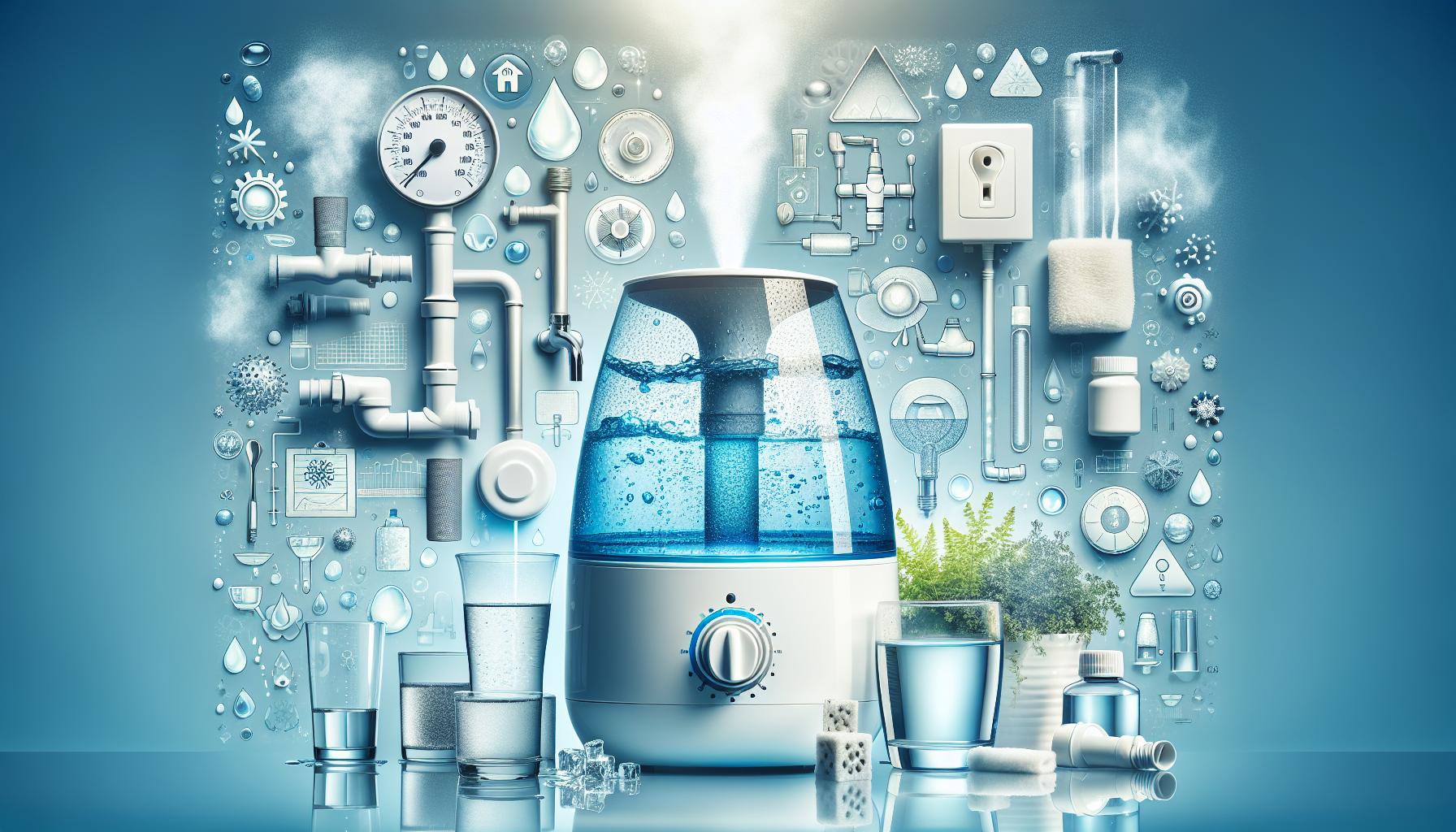
Best Practices for Filling Your Humidifier
Filling your humidifier correctly is crucial for its performance and the quality of air in your home. One prevalent question many users have is whether purified water can be used in a humidifier. While the answer is generally yes, some factors can affect its effectiveness and your device’s longevity. Understanding the with water not only ensures optimal performance, but also maintains a clean air environment, combating dryness and discomfort in indoor spaces.
Choosing the Right Water
When it comes to the type of water to use in your humidifier, opting for purified water has several advantages. Purified water, whether distilled or filtered, is free from minerals that can cause buildup in your device, extending its lifespan. However, it’s important to note that using tap water may lead to mineral deposits, which can encourage bacterial growth and affect air quality. Here’s a quick comparison:
| Water Type | Pros | Cons |
|---|---|---|
| Purified Water | Reduces mineral buildup; Better for air quality | Can be more expensive; Requires storage |
| Tap Water | Readily available; Cost-effective | Can cause buildup; May harbor bacteria |
Filling Techniques
When filling your humidifier, always ensure that the water reservoir is clean. Prior to adding new water, rinse out the tank with a mixture of water and vinegar to eliminate any mold or bacteria. After rinsing, fill the humidifier with purified or distilled water, taking care not to overfill beyond the indicated line. This practice helps maintain a consistent humidity level without overflowing, which can lead to water damage or mold development in your living area.
Maintenance and Storage
Regular maintenance is key to sustaining your humidifier’s efficiency. Always empty any remaining water if the device will not be used for an extended period. Storing your humidifier in a cool, dry place protects it from moisture damage and prevents the growth of mold or mildew. Additionally, replace the water regularly, ideally every 24 hours, to ensure that you are dispersing clean and safe moisture into your air.
By following these , including the use of purified water, you can enjoy all the health benefits of a well-maintained humidifier while ensuring a clean air environment in your home.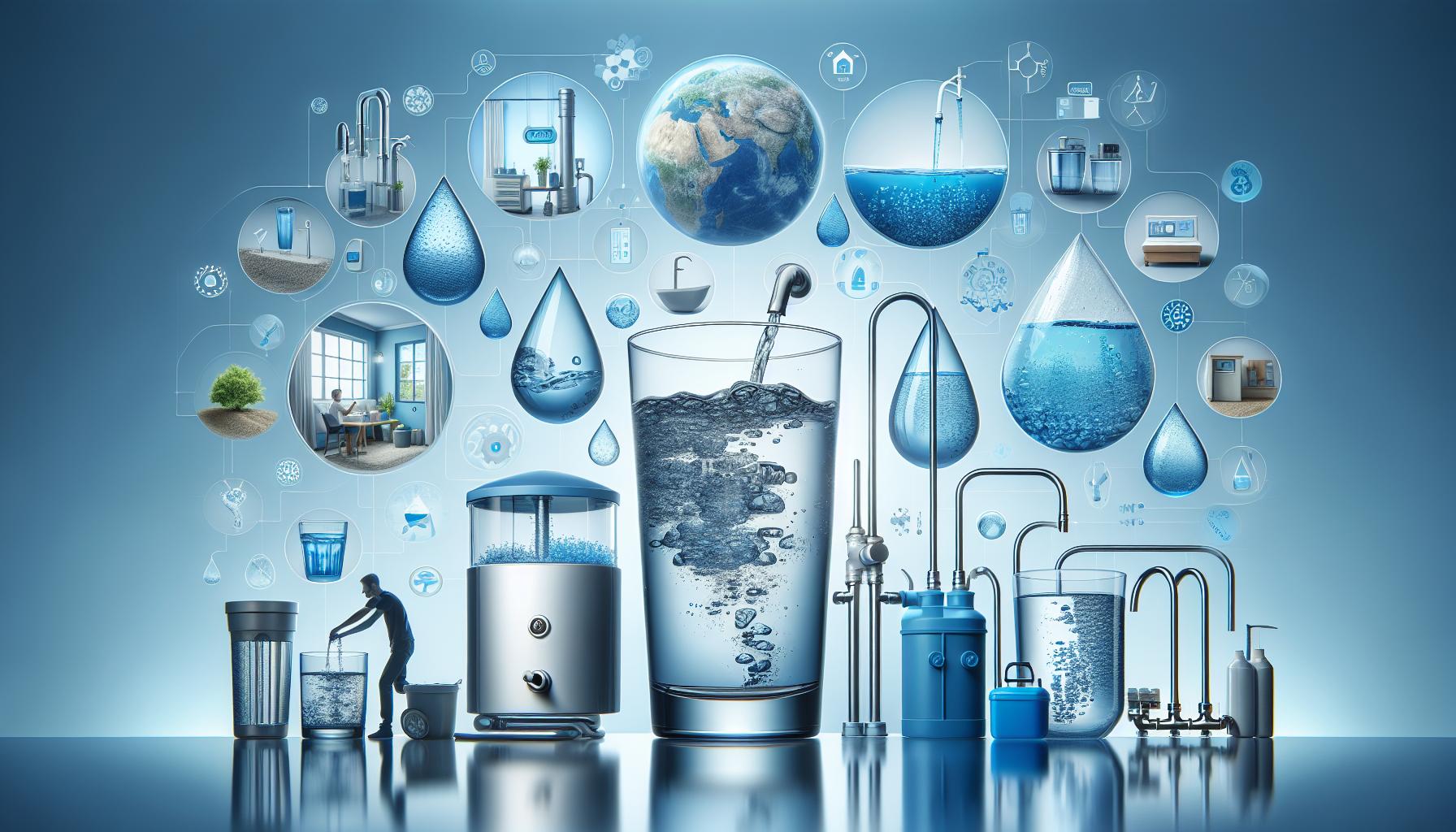
Which Types of Water Should You Avoid?
When choosing water for your humidifier, it’s crucial to consider what types should be avoided. Using the wrong type of water can lead to performance issues and affect your indoor air quality. Many people mistakenly assume that any water is suitable for their humidifiers, but this is far from the truth. Understanding the implications of different water sources can help you maintain a healthier environment at home.
Types of Water to Stay Away From
- Tap Water: While convenient, tap water often contains minerals and impurities that can lead to mineral buildup in your humidifier. This can result in a white dust being dispersed into the air and potentially aggravating respiratory issues. Additionally, untreated tap water can harbor bacteria and other contaminants that could compromise your indoor air quality [[3]].
- Hard Water: Similar to tap water, hard water is high in calcium and magnesium. Using hard water in your humidifier will only exacerbate mineral deposits and maintenance issues, decreasing the lifespan of the unit. Furthermore, it can lastingly affect the air quality, breeding bacteria in the process [[1]].
- Non-Distilled Bottled Water: Many assume that bottled water is a safe alternative, but it can vary significantly in mineral content. Many bottled waters contain high levels of dissolved minerals that can lead to similar problems as tap water, increasing the need for frequent cleaning and maintenance of your humidifier.
- Well Water: If you live in a rural area, using well water can introduce a host of issues. Well water often contains bacteria, heavy metals, and other contaminants that can harm your humidifier and degrade air quality over time [[2]].
By avoiding these types of water, you can ensure your humidifier operates efficiently and promotes a healthier living space. Opting for distilled or purified water is recommended, as these types minimize the risk of bacterial growth and reduce mineral residue buildup, ultimately supporting cleaner air in your home.
How Purified Water Can Promote Cleaner Indoor Air
Maintaining a healthy indoor environment is crucial, and one effective method to enhance air quality is through the use of purified water in humidifiers. Using purified water rather than tap water can significantly reduce the presence of pollutants and minerals that contribute to poor air quality. With increasing awareness surrounding air pollution—both outdoors and indoors—the role of humidifiers equipped with pure water becomes essential in creating a more breathable atmosphere.
Benefits of Using Purified Water in Humidifiers
When you opt for purified water in your humidifier, you minimize the introduction of unwanted minerals and microorganisms into the air. This not only helps in preventing the white dust that can settle on surfaces, but also aids in reducing allergens that might otherwise exacerbate respiratory issues. Here are some key benefits:
- Reduces Allergens: Purified water can help to lower the levels of dust mites and mold spores, both of which thrive in humid environments.
- Improves Respiratory Health: Breathing in clean, pure vapor can significantly enhance comfort for individuals suffering from asthma or allergies.
- Enhances Humidification Efficiency: Humidifiers using purified water work more efficiently since they do not have to deal with mineral buildup.
Best Practices for Using Purified Water
To maximize the benefits of using purified water in humidifiers, consider the following best practices:
- Regularly clean your humidifier to prevent the growth of bacteria and mold.
- Change the water daily to ensure it remains clean and effective.
- Follow the manufacturer’s guidelines regarding the type of water recommended for your specific humidifier model.
By incorporating purified water in your humidifying system, you can not only achieve a more comfortable living space but also ensure that the air you breathe is cleaner and healthier. Emphasizing the importance of clean air leads to tangible health benefits, contributing to an overall improved quality of life.
Tips for Maintaining Your Humidifier with Clean Water
Keeping your humidifier clean and well-maintained is essential for optimal air quality and your overall health. Humidifiers can improve indoor air by adding moisture, yet if not cared for properly, they can become breeding grounds for mold and bacteria. Using the right kind of water in your humidifier plays a crucial role in reducing these risks. By opting for purified or distilled water, you minimize mineral buildup, which can otherwise be dispersed into the air.
Best Practices for Water Management
To ensure your humidifier operates effectively, adhere to the following tips:
- Use Distilled or Purified Water: Always fill your humidifier with distilled or purified water. This type of water has undergone processes that remove minerals and impurities, significantly reducing the risk of scale buildup and airborne contaminants [[1](https://www.livestrong.com/article/13775656-how-to-clean-humidifier-and-why/)].
- Change Water Daily: Make it a habit to empty, clean, and refill your humidifier tank with fresh water every day. This routine helps prevent the growth of microorganisms and keeps the air clean [[3](https://www.epa.gov/indoor-air-quality-iaq/use-and-care-home-humidifiers)].
- Clean Regularly: Schedule a deep clean of your humidifier at least once a week. Disassemble the unit as recommended by the manufacturer, scrub all surfaces with white vinegar or a mild disinfectant, and rinse thoroughly to eliminate buildup and harmful bacteria [[1](https://www.livestrong.com/article/13775656-how-to-clean-humidifier-and-why/)].
- Monitor the Filter: If your humidifier uses a filter, check it regularly and replace it when necessary. Filters can trap dust, minerals, and other particulate matter, and a dirty filter can compromise the air quality [[1](https://www.livestrong.com/article/13775656-how-to-clean-humidifier-and-why/)].
Choosing the Right Water: A Comparison
Understanding water types can significantly impact your humidifier’s performance and maintenance. Below is a quick comparison of different water options:
| Water Type | Pros | Cons |
|---|---|---|
| Distilled Water | Low mineral content; reduced risk of buildup | Requires purchase or distillation process |
| Purified Water | Free of contaminants and chemicals | Often processed and may cost more |
| Tap Water | Readily available; no cost | Higher minerals can lead to buildup and air quality issues |
By following these tailored suggestions, you can enjoy the benefits of a humidifier while minimizing health risks associated with improper cleaning and water management. Always adhere to these best practices for maintaining your humidifier with clean water to ensure a healthier living environment free from allergens and irritants.
Common Myths About Humidifiers and Water Choices
Humidifiers play a crucial role in maintaining healthy indoor air quality, but misconceptions about water choices for these devices abound. Many people believe that any type of water can be used in a humidifier, which is a myth that merits further exploration. Using the wrong type of water can lead to serious issues, including poor air quality and damage to the humidifier itself. Understanding the implications of your water choice is essential for optimal performance and health benefits.
Myth: Any Water Is Fine for Humidifiers
While some humidifiers can tolerate tap water, this isn’t a universal truth. Tap water often contains minerals that, when vaporized, can foster the growth of white dust, which settles around the room and can be harmful when inhaled. For ultrasonic humidifiers, the minerals in tap water can accumulate over time, potentially clogging the machine and diminishing its efficiency. Therefore, it is crucial to consider the type of water you’re using.
The Role of Purified Water
So, can you put purified water in a humidifier? Yes, this is generally recommended. Purified water—such as distilled or demineralized water—contains significantly fewer minerals than tap water, thereby reducing the risk of mineral buildup. Using purified water helps maintain a cleaner operation and ensures that the air being distributed is free from contaminants that could otherwise aggravate respiratory issues.
Best Practices for Clean Air
To ensure the best performance from your humidifier and to promote clean air, consider following these guidelines:
- Use Purified Water: Distilled or demineralized water is ideal to minimize mineral deposits.
- Regular Maintenance: Clean your humidifier according to the manufacturer’s recommendations to prevent mold and bacteria growth.
- Monitor Humidity Levels: Maintain indoor humidity between 30-50% for optimal comfort and health.
- Replace Water Daily: Stagnant water can become a breeding ground for pathogens.
By debunking , you can improve your air quality and overall well-being. Making informed decisions about the water you use not only enhances the effectiveness of your humidifier but also safeguards your health.
Exploring Alternative Water Options for Humidifiers
Choosing the right water for your humidifier can significantly improve air quality and ensure the device functions optimally. While many people may wonder about the feasibility of using purified water, it’s essential to explore a range of alternatives that can cater to different humidifier types and your specific needs.
Filtered Water
One of the most accessible alternatives is filtered water. Utilizing a water filter can help reduce impurities and minimize minerals that may lead to buildup inside the humidifier. Most filters effectively remove contaminants while retaining beneficial elements like hydration, making filtered water a great option for those looking for a balance between safety and effectiveness. However, it is crucial to regularly change the filter to ensure optimal performance.
Distilled Water
Another highly recommended choice is distilled water. This type of water undergoes a purification process where it is boiled, and the steam collected removes minerals and impurities. Using distilled water in your humidifier not only helps in preventing white dust from dispersing into the air but also extends the life of the device itself. Many users report improvements in air quality and reduced respiratory issues when switching to distilled water.
Demineralized Water
Demineralized water is also an excellent option, especially for users with sensitive respiratory systems. It is processed to remove virtually all mineral content, which is helpful for avoiding mineral buildup on the humidifier. This option is particularly suitable for ultrasonic humidifiers, as they can be sensitive to minerals that lead to clogging.
Comparative Overview
To summarize the various water options available for use in humidifiers, consider the table below which highlights their key features and benefits:
| Water Type | Purity Level | Mineral Content | Recommended For |
|---|---|---|---|
| Filtered Water | Moderate | Low | General Use |
| Distilled Water | High | Very Low | All Humidifiers |
| Demineralized Water | High | Very Low | Ultrasonic Models |
In conclusion, whether you’re considering whether to *put purified water in a humidifier or exploring the best practices for clean air*, evaluating these alternatives can enhance your overall indoor air quality while ensuring your humidifier runs efficiently. Make sure to assess your humidifier type and personal health needs to select the most appropriate water option.
Frequently asked questions
Can You Put Purified Water in a Humidifier?
Yes, you can use purified water in a humidifier. It is often recommended as it reduces the risk of mineral buildup, improving the air quality you breathe.
Purified water, which is treated to remove impurities, is generally safe for humidifiers. However, it’s essential to consult your humidifier’s manual, as some devices may have specific water requirements. Regular cleaning is also necessary to maintain optimal performance.
What is the best type of water for a humidifier?
The best types of water for humidifiers are distilled or filtered water. Both options minimize mineral deposits and reduce maintenance.
Using distilled water helps avoid white dust that can accumulate from tap water. Filtered water can also be effective, especially if it removes impurities like calcium and magnesium. Refer to your humidifier’s guidelines to choose the most suitable option.
Can I mix purified water with regular tap water in my humidifier?
It’s not recommended to mix purified water with regular tap water. This can reintroduce minerals that may cause buildup.
If you want to use tap water, consider using a good quality water filter to ensure it’s safe for your humidifier. Always prioritize water that meets your humidifier’s standards to maintain air quality.
Why does mineral buildup occur in humidifiers?
Mineral buildup occurs due to the evaporation of water containing dissolved minerals. When the water evaporates, these minerals remain and can collect inside the humidifier.
Using purified or distilled water significantly reduces this buildup, leading to fewer maintenance needs and extending your appliance’s lifespan. Regular cleaning also mitigates potential issues.
How does using purified water affect air quality?
Using purified water can improve air quality by reducing pollutants. It minimizes the dispersion of harmful minerals and bacteria into the air.
With clean water in your humidifier, you’re less likely to breathe in dust or allergens. For the best results, keep your humidifier clean and follow the manufacturer’s recommendations.
What should I avoid adding to my humidifier water?
Avoid adding any chemicals or essential oils to the water. This practice can damage the humidifier and may lead to breathing issues.
Only use approved additives as specified by your humidifier’s manufacturer. Stick to distilled or purified water to ensure you are only releasing safe humidified air.
Can I use bottled water in my humidifier?
Yes, bottled purified water can be used in a humidifier. However, make sure it is not mineral water as that can cause the same issues as tap water.
Always check the label to confirm it’s purified. If in doubt, stick to distilledwater or water specifically labeled as safe for humidifiers. This way, you’ll keep the air clean and your device functioning well.
To Wrap It Up
In summary, using purified water in your humidifier can be a great choice for maintaining clean air in your home. It helps reduce the risk of dispersing minerals and microorganisms that can come from tap water, ensuring a healthier indoor environment. To maximize the effectiveness of your humidifier, remember to follow best practices such as regular cleaning, proper placement, and using the right type of water. By making these simple adjustments, you can enjoy the benefits of enhanced air quality while breathing easier at home. For more tips and detailed guidance, explore our resources further and take charge of your indoor air quality journey!

